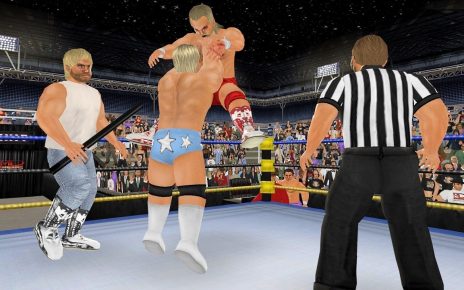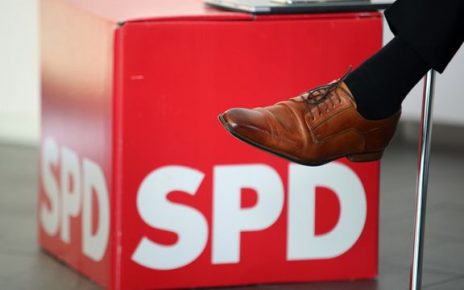“Our experiences trump everything else, but mostly, those experiences are incredibly skewed: they teach us, but they don’t teach us well.”
Decades before Simone de Beauvoir contemplated how chance and choice converge to make us who we are from the fortunate platform of old age, the eighteen-year-old Sylvia Plath — who never reached that fortunate platform, her life felled by the same conspiracy of chance and choice — contemplated these indelible forces in the guise of free will, writing in her journal that “there is such a narrow crack of it for man to move in, crushed as he is from birth by environment, heredity, time and event and local convention.”
Two generations later, Maria Konnikova entered this eternal conundrum via an improbable path half chosen and half chanced into, emerging with insights into the paradoxes of chance and control, which neither strand alone could have afforded.
Having devoted five years of doctoral work, with the creator of the famous Marshmallow Experiment as her advisor, to designing and performing psychology experiments probing how people’s perception of control in situations dictated by pure chance shapes decision-making and outcomes, she was suddenly life-thrust into a much more intimate empiricism. A period of successive losses rendered her the sole bread-winner of a family as a mysterious malady savaged her body without warning, gnawing at the fundaments of consciousness.
In the midst of this maelstrom, she became interested in the world of poker. She entered it as a psychologist on a philosophical inquiry — how often are we actually in control when we think we are, how do we navigate uncertain situations with incomplete information, and how can we ever separate the product of our own efforts from the strokes of randomness governing the universe? She emerged an unexpected master of the game, master of her own mind in an entirely new way.
The record of that experience became The Biggest Bluff: How I Learned to Pay Attention, Master Myself, and Win (public library) — an inspired investigation of “the struggle for balance on the spectrum of luck and control in the lives we lead, and the decisions we make,” partway between memoir, primer on the psychology of decision-making, and playbook for life.

Having previously written about the psychology of confidence through the lens of con artists and the psychology of creativity through the lens of Sherlock Holmes, she takes the same singular approach of erudition and perspicacity to the improbable test-bed of poker, lacing her elegant primers on probability and game theory with perfectly illustrative invocations of Dostoyevsky, Epictetus, Dawkins, Ephron, Kant.
More than half a century after W. I. B. Beveridge observed in the undervalued treasure The Art of Scientific Investigation that “although we cannot deliberately evoke that will-o’-the-wisp, chance, we can be on the alert for it, prepare ourselves to recognize it and profit by it when it comes,” she writes:
That’s the thing about life: You can do what you do but in the end, some things remain stubbornly outside your control. You can’t calculate for dumb bad luck… My reasons for getting into poker in the first place were to better understand that line between skill and luck, to learn what I could control and what I couldn’t, and here was a strongly-worded lesson if ever there were: you can’t bluff chance.
[…]
Real life is not just about modeling the mathematically optimal decisions. It’s about discerning the hidden, the uniquely human. It’s about realizing that no amount of formal modeling will ever be able to capture the vagaries and surprises of human nature.

Drawing on the decision-making experiments she had conducted for her graduate work, she offers an empirical echo of neuroscientist Sam Harris’s insistence that our free-will experience of choice is only the illusion of choice, recounting her utterly unexpected finding in these experimental investment scenarios:
Over and over, people would overestimate the degree of control they had over events — smart people, people who excelled at many things, people who should have known better… The more they overestimated their own skill relative to luck, the less they learned from what the environment was trying to tell them, and the worse their decisions became… The illusion of control is what prevented real control over the game from emerging — and before long, the quality of people’s decisions deteriorated. They did what worked in the past, or what they had decided would work — and failed to grasp that the circumstances had shifted so that a previously successful strategy was no longer so. People failed to see what the world was telling them when that message wasn’t one they wanted to hear. They liked being the rulers of their environment. When the environment knew more than they did — well, that was no good at all. Here was the cruel truth: we humans too often think ourselves in firm control when we are really playing by the rules of chance.

This cognitive glitch, she reasons, is not a personal failing of the individual but a fossil of the evolutionary history of our species — a species that survived by dealing with the immediate threats of particular environments, mistaking those isolated incidents for statistically representative distributions of common experience, mistaking in turn anecdote for data — a misapprehension that scars us modern humans with everything from the mental machinery of stereotypes to the crooked inner calculus of gambling. She writes:
The equation of luck and skill is, at its heart, probabilistic. And a basic shortcoming of our neural wiring is that we can’t quite grasp probabilities. Statistics are completely counterintuitive: our brains are simply not cut out, evolutionarily, to understand that inherent uncertainty. There were no numbers or calculations in our early environment — just personal experience and anecdote. We didn’t learn to deal with information presented in an abstract fashion, such as tigers are incredibly rare in this part of the country, and you have a 2 percent chance of encountering one, and an even lower chance of being attacked; we learned instead to deal with brute emotions such as last night there was a tiger here and it looked pretty damn scary.
Millennia of evolution have hardly allayed our preference for anecdote over probability — a failure to internalize mathematical rules known in psychology as the description‐experience gap, leading to what the Nobel-winning psychologist Daniel Kahneman has memorably described as our tendency to draw our confidence in our beliefs not from the quality of the evidence but from the coherence of the story we have constructed. Numberless studies have demonstrated that the human distaste for numbers leads people to make decisions based not on the data they are shown but on the pattern-recognition of non-representative past experience we call intuition, gut feeling, hunch.

A central paradox magnifying our ineptitude at parsing probabilities is that, in everyday life, we only tend to notice chance when the dice roll counter to our expectations — we are congenitally blind to the silent tilling work of randomness for as long as it smooths reality in our favor. But the moment life grows rough and the topography of reality becomes unfamiliar, we begin coloring chance with emotional interpretation:
Some of us imbue probability with emotion. It becomes luck: chance that has suddenly acquired a valence, positive or negative, fortuitous or unfortunate. Good or bad luck. A lucky or unlucky break. Some of us invest luck with meaning, direction, and intent. It becomes fate, karma, kismet — chance with an agenda. It was meant to be. Some even go a step further: predestination. It was always meant to be, and any sense of control or free will we may think we have is pure illusion.

Poker presented a perfect ready-made laboratory for distilling this theoretical insight into a practical toolkit for making sounder choices. Picking up the gauntlet the titanic mathematician and computing pioneer John von Neumann threw down nearly a century ago with his revolutionary illumination of behavioral economics through game theory, she writes:
Our experiences trump everything else, but mostly, those experiences are incredibly skewed: they teach us, but they don’t teach us well. It’s why disentangling chance from skill is so difficult in everyday decisions: it’s a statistical undertaking, and one we are not normally equipped to deal with. Which brings me to poker: Used in the right way, experience can be a powerful ally in helping to understand probabilistic scenarios… The correct systematic learning process can help you unravel chance from everything else in a way that no amount of cramming numbers or studying theory ever will.
[…]
Poker, unlike quite any other game, mirrors life. It isn’t the roulette wheel of pure chance, nor is it the chess of mathematical elegance and perfect information. Like the world we inhabit, it consists of an inextricable joining of the two. Poker stands at the fulcrum that balances two oppositional forces in our lives — chance and control. Anyone can get lucky — or unlucky — at a single hand, a single game, a single tournament. One turn and you’re on top of the world — another, you are cast out, no matter your skill, training, preparation, aptitude. In the end, though, luck is a short‐term friend or foe. Skill shines through over the longer time horizon.
The intricacies of the relationship between chance and skill, and how it shapes our experience of the world, is what The Biggest Bluff goes on to examine through the curious universe of poker: how mathematics can depersonalize chance and furnish the emotional forbearance necessary not to let small fluctuations of fortune derail us; how the fascinating psychology of locus of control (whether we attribute our life-outcomes to external factors of chance or internal endowments of skill) affects those outcomes; how to wrest from our lack of agency a rational toolkit for not just surviving but thriving in uncertainty; how to live with the awful, humbling fact that however great our skill and however much it can mitigate the work of chance, it can never be enough to entirely undo it — and how to make of that fact not a sinkhole of helplessness but a portal of possibility.
donating = loving
Bringing you (ad-free) Brain Pickings takes me hundreds of hours each month. If you find any joy and stimulation here, please consider becoming a Supporting Member with a recurring monthly donation of your choosing, between a cup of tea and a good dinner.
newsletter
Brain Pickings has a free weekly newsletter. It comes out on Sundays and offers the week’s most unmissable reads. Here’s what to expect. Like? Sign up.






